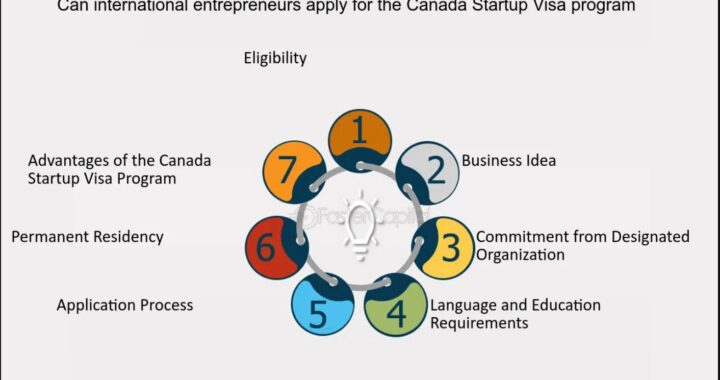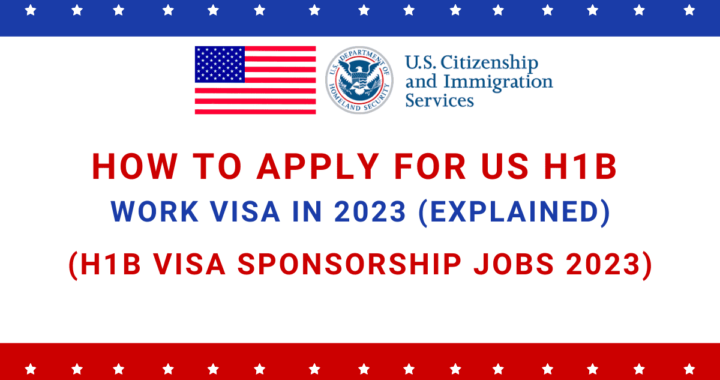Get To Know Everything About Canadian Experience Class immigration

Requirements for Canadian Experience Class
The Canadian Experience Class (CEC) is an immigration program that enables individuals who are working or have worked in Canada for at least one year to immigrate permanently. This class is a part of Canada’s Express Entry system.
The Canadian government recognizes the deep pool of skilled workers who are already working in Canada and expects them to become permanent resident holders. These are people and households who have set down roots and want to stay in Canada for the future.
Eligibility Criteria for Canada Experience Class–
CEC candidates must have the following :
- They should have at least 12 months of full-time work experience as a skilled worker (or an equivalent in part-time) in Canada within the duration of the last three years. Experience must be obtained while on a valid work permit and their occupations should be classified under the National Occupational Classification (NOC) as skill type 0, A, or B.
- These candidates should Intend on residency outside the province of Quebec; and
- Note:- work experience which is gained through self-employment and as a full-time student is not eligible under this Class.
Language Requirements for Canadian Experience Class
They should fulfill the required language levels crucial for each language ability which is (speaking, reading, listening, and writing). Let’s look at the levels outlined below which must be proven by taking an approved language test
NOC skill level
The minimum requirement for all four language abilities-
- For NOC 0 or A, it should be CLB 7
- For NOC B it should be CLB 5
Candidates for the Canadian Experience Class can appear for any of the following IRCC-approved language tests which include:
- IELTS-General (English)
- CELPIP-General (English)
- TCF (French)
- TEF (French)
Candidates who appear for more than one language like both English and French get additional CRS points.
How to apply as a CEC Applicant
Let’s have a look at the process — from becoming a skilled worker in Canada, to receiving your Permanent Resident (PR) card.
Step 1. Receive a Canadian work permit.
- These candidates should have valid work in Canada which is an important requirement under this program.
- An open work permit may be an option for some people who are eligible under the International Experience Canada (IEC) program, foreign workers, or the spouse/common-law partner of an international student in Canada.
- For others, an employer-specific closed work permit may be issued.
Step 2: Obtain a year of work in Canada
Even if you have Eleven-and-a-half months of experience it will not be enough for CEC. To be eligible for the Canadian Experience Class you need at least a year of work experience (or equivalent to one year, if part-time).
Step 3: Make sure to get a minimum CLB for your Language test
- Take your language test and get it done.
- English candidates may appear for the IELTS or CELPIP test.
- French candidates may take the TEF and TCF which are the available options.
Step 4: Create an Express Entry profile
This step must be done on the IRCC website.
You are asked to provide some personal information, out of which some are self-declared (your work history), while some are accompanied by documentation (your language proficiency).
Step 5: Ways to Improve your profile as well as ranking under the CRS
Canadian Experience Class candidates should get an ECA ( Education Credentials Assessment)or they can upload proof of their Canadian education credential to increase their CRS score and maximize their possibilities of being invited to apply for permanent residence.
There are other possible ways to improve your ranking. For instance, obtain additional work experience or check if you are eligible in any of the Express Entry-aligned Provincial Nominee Program streams
If you get selected by the province then you get additional 600 points which get added to your Express Entry profile
Step 6: Getting an invitation to apply
This step brings the most joy, as it allows you and your family to apply for permanent residence. From this point, you get 60 days to completely submit your application with supporting documents and proof of funds.
You should also get detailed work reference letters from previous employers.
Step 7: Get your medical, provide security background checks, and submit an e-application
Canadian Experience Class applicants are screened for possible medical and criminal inadmissibility. You need to show that you have obtained a medical exam with an IRCC-recognized panel.
Finally, you have to provide a clearance certificate or get a police background check from each country you have stayed in there for at least six months or more after the age of 18.
Also Read- Options for Self Employed for Canadian Immigration
Step 8: Your e-application gets reviewed
A Canadian immigration officer reviews the submitted e-application and lets’s know if anything else is required.
Step 9: Get confirmation of PR status and finish your landing
The processing time for almost 80% of applications of CEC candidates is less than six months. After the approval from the Canadian government, he or she receives a confirmation of permanent residence (COPR) document.
Step 10: Collect your PR card
Once you have your status confirmed, you are then eligible to apply for your PR card. In case you travel outside Canada, then you can use this card as proof of your status in Canada.
We have described a very simple procedure for getting the Canadian Permanent Residence as a CEC candidate. So, applying for the Canadian Experience Class was never this easy and can be done by anyone eligible for the Canadian Experience Class. However, many Canadian Experience Class Candidates pay thousands of bucks to consult agencies to further process their application; perhaps they might do it because they don’t get time from their work. Finally, it’s all about an individual’s choice

 What actions by Trump Government are in store for illegal immigrants in US? What are Challenges to deport illegal immigrants from US?
What actions by Trump Government are in store for illegal immigrants in US? What are Challenges to deport illegal immigrants from US?  What are changes in Canada Start up Visa Program and Self-Employed Persons Program. How would it affect the potential immigrants to Canada?
What are changes in Canada Start up Visa Program and Self-Employed Persons Program. How would it affect the potential immigrants to Canada?  Launch Your Dreams: A Guide to Canada’s Start-Up Visa Program for Global Entrepreneurs
Launch Your Dreams: A Guide to Canada’s Start-Up Visa Program for Global Entrepreneurs  Options for Immigrating to Canada as a Healthcare Worker- Best Canadian Provinces that offer good salaries
Options for Immigrating to Canada as a Healthcare Worker- Best Canadian Provinces that offer good salaries  Immigrating to Quebec province Canada- Professions in demand with salaries- Racial Discrimination
Immigrating to Quebec province Canada- Professions in demand with salaries- Racial Discrimination  H1B Visa- Eligibility Requirements- its Duration- Process to apply and Professions in demand
H1B Visa- Eligibility Requirements- its Duration- Process to apply and Professions in demand  Recent Changes to Canada’s Work Permit Rules and its impact on Immigrants from India
Recent Changes to Canada’s Work Permit Rules and its impact on Immigrants from India  Applications for UK Immigration witness major decline as the Immigration Laws undergo significant changes
Applications for UK Immigration witness major decline as the Immigration Laws undergo significant changes